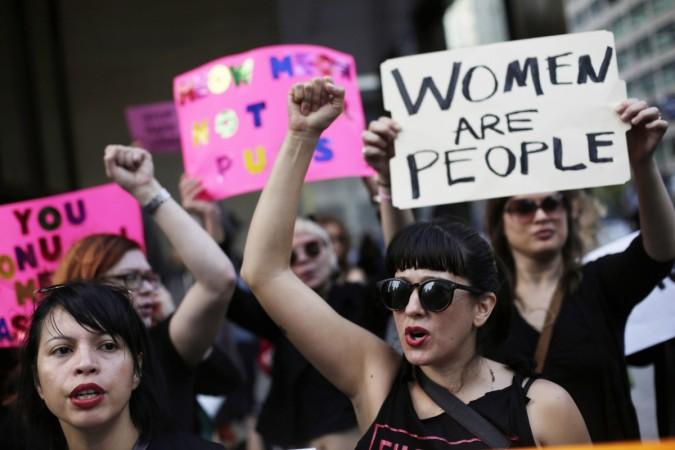
Hundreds of women from all over the country are pouring in Washington to gather for a protest march at the base of Capitol Hill on Saturday, a day after Donald Trump was officially sworn in as the president of the United States.
Over 200,000 people are expected to attend the Women's March that will begin at 10 a.m. The march has been organised for people who support women's rights to come together and "send a bold message to [the] new administration on their first day in office, and to the world that women's rights are human rights."
US President Donald Trump signs first executive order on Obamacare
The demonstration, which is set to be one of the biggest in American history, will see address from civil rights legend Angela Davis, feminist icon Gloria Steinem or the pro-choice campaigner Cecile Richards.
The massive event will also see some performances from A-list entertainers, which is estimated to go on for four hours. The demonstrators reportedly will march to the Eclipse, the large green space opposite the White House. Although Trump may not hear the roar of the demonstrators, he might be able to see the throng if he steps out on to the balcony of the residence.
At the time of the march, Trump will be offering "a service of prayer and reflection" at the National Cathedral. "I hope he will be praying about how to be the president of all the people. We are not going to let our rights be rolled back by anyone," Melanie Campbell, president of the National Coalition on Black Civic Participation and a speaker at the march, told the Guardian.
The Women's March campaign has witnessed a registration of around 200,000 to 250,000 people for the protest, which mostly include women. However, the people planning the protest are reportedly prepared if the numbers of protesters are increased considerably. Reports state that the march has been organised in coordination with the police, private security staff, city officials and thousands of volunteers.
Although the protesters are against Trump's treatment of women, the march is also organised to raise a voice against the threat on varying human rights causes from the new administration including women's healthcare, their reproductive rights, civil rights, immigration, racism and Islamophobia. Trump during his campaign had mocked women on the basis of their size and appearance and had also bragged about sexually assaulting them on tape.
"I'm speaking out and marching because healthcare is under attack and women's reproductive rights are under attack. So many awful things were said about women by the incoming president. I put a lot of my energy under Obama into supporting black women's leadership and women's leadership overall – we could have broken the glass ceiling with Hillary Clinton and it didn't happen, so that's what's motivated me to take part," Campbell said.
Some members of the Congress from the Democratic Party are set to join the protests too, who also boycotted Trump's inauguration ceremony on Friday. One of those members includes US representative Chellie Pingree.
Not just in America, Women's Marches to be held in 75 countries
The marches will not only happen in Washington, United States, there are around 600 sister marches scheduled to happen simultaneously in around 75 countries of the world. The rallying cry of all these marches will be "women's rights are human rights," as coined by the 2016 Democratic nominee Hillary Clinton. Some of these marches are already underway, where activists from Saudi Arabia, Iraq, South Korea, Colombia, Iceland and elsewhere are marching in support of women's rights. Reports state that in total more than 2 million people are expected to participate in the protest marches.















